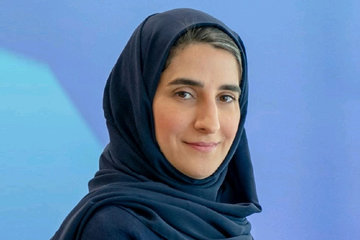
Samar Bint Mazin Saleh has made history this week in Saudi Arabia by becoming the commercial attaché at the Saudi Commercial Attache's Office in Tokyo. Her appointment, which was made by Minister of Commerce and Investment Dr. Majed Bin Abdullah Al-Qasabi, is in line with the Kingdom's efforts to assign more women to key leadership roles.
According to Saudi Gazette, Saleh holds a masterís degree in journalism and international media from City University in London, completed the executive leadership program at Harvard University in the United States, and has a bachelor's degree in journalism and mass media from the American University in Sharjah.
Fluent in English and Italian, Saleh worked as in-charge for developing trade exchange at the Commercial Attache's Office in the Kingdomís Embassy in Italy prior to her recent appointment. Within this role, she was responsible for many tasks including coordinating with the Saudi and Italian government authorities related with promoting nonoil exports, according to the executive plan of the Foreign Trade Agency of the commercial attaches offices, linked with Vision 2030.
Saleh's new role follows a string of landmark appointments made in the Kingdom that have placed women in key leadership roles, including the appointment last year of Princess Reema bin Bandar bin Sultan as President of the Saudi Federation for Community Sports.
Ever since his ascension to power in June 2017, Crown Prince Mohammed Bin Salman has been working diligently towards reforming Saudi Arabia by spearheading Vision 2030, the Kingdomís ambitious strategy to diversify its oil-dependent economy. This Vision focuses on a number of areas including boosting key sectors, encouraging foreign investment, and moving the Kingdom towards the more tolerant Islam of its past.
A significant part of Vision 2030 has been a movement towards improving the rights of women in Saudi Arabia by revisiting laws governing their mobility, giving more social and economic freedoms to them, and supporting their increased involvement in building the economy.
In less than a year, Saudi Arabia has already witnessed a wave of reforms under the Crown Prince's guidance. History was made last year when the decades-long ban on female motorists was lifted and women were finally allowed to attend public concerts and sports events. The Kingdom also saw the ban on public theaters rescinded and the rights of women has improved in all facets of society, from business ownership to divorce and custody matters.
















